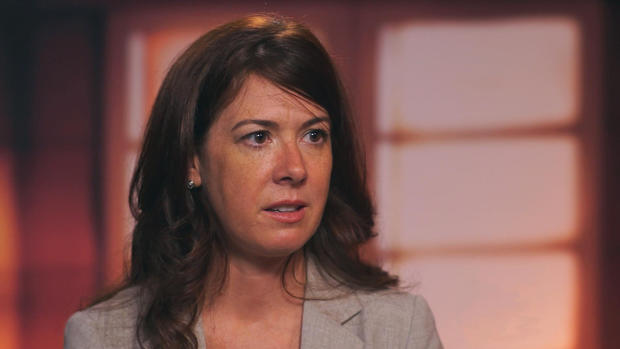How one CEO is reimagining health care
Even in the age of Snapchat and Periscope, if you want your doctor to examine your child's burned hand, you have to make a trip to the doctor's office.
Meghan Conroy wants to change that.
A former pharmaceutical executive, Conroy founded CaptureProof, a digital platform that allows patients, doctors, labs and insurance companies to transfer photos, videos and medical records through a closed, secure system. The transfer of patient records needs that degree of security to comply with U.S. HIPAA rules.
Conroy is trying to break down traditional barriers - time constraints and geographic distance, for example - to create a new connection between doctors and patients and in doing so, potentially foster a digital revolution within health care.
CaptureProof's digital platform, which relies heavily on photos and videos, gives doctors and patients the ability to engage easily with each other, regardless of whether they're across town from one other or on different continents. Using those visuals, doctors can assess patients' conditions, provide diagnoses and compare data to monitor their progress. In addition to increased accessibility, the technology also creates a digital file for patients, allowing doctors to easily access and analyze patient information.
Because of HIPAA rules and regulations digital doctor-patient communication regarding any protected health data is difficult and extremely risky for doctors. If any data is lost and breached doctors can be fined up to $50,000 per piece of data. CaptureProof is a risk-free solution, a digital means of communication that meets all security requirements of HIPAA.
"I realized if made meaningful, this medium and data could be so powerful because it has the ability to convey thousands of words--millions of words, in a glance," Conroy said.
Conroy, who has a bachelors in physiology, started her career wanting to be a doctor and spent her time volunteering in an emergency room. The job taught her about the health care field, most importantly how to communicate with doctors. But as time went on, she sought a new direction.
"I knew that there was more out there, somewhere," she said.
With no notion of where to go or what to do, she followed another passion, photography, and a new path began to unfold. Conroy met a stranger on a plane who offered her a job doing photography for clinical medical trials and that work - combining her interest in health care and visual arts - laid the the foundation for her future company.
"I didn't pick CaptureProof, it picked me," Conroy said. "It was never a moment where I said 'I'm going to go and start a company.' I had this idea when a problem was presented to me and I had a solution to this amazing problem and the ability to use this short time on earth to make it a better place for all of us to be."
So far, the results appear promising. According to Conroy, studies show using CaptureProof reduces pre-appointment exams by 78 percent and post-operative emergency visits by half, saving time and resources for both doctors and patients. There are thousands of doctors using the platform with 32 sub-specialties and hundreds of thousands of patients, Conroy said.
A partnership with Kaiser Permanente is exposing CaptureProof to whole new network of doctors and patients. A doctor simply invites the patient to connect with them on the app by prescribing a media Rx(R), and patients can use it for free.
However, worldwide growth will be the true key to it's success. Conroy hopes for CaptureProof to soon be available on every continent.
"We want to get the finite amount of care to the infinite need across the world."
